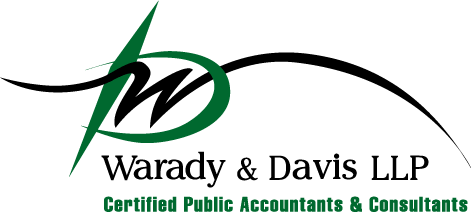1. Claim your full write‐offs.
Tax limits, thresholds, and ceilings change from year to year, so don’t assume that deduction limits or tax rules from prior years apply now. Failing to learn what’s new could result in you shortchanging yourself. For example, there is an increased tax credit for paying at least half the cost of health coverage for employees…but check eligibility rules. If you’re self‐employed, don’t forget to deduct one‐half of your self‐employment tax. Although it’s considered a personal (non‐business) deduction, you don’t need to itemize to claim it.
2. Make decisions about writing off equipment purchases.
For 2014, there are three possible ways to deduct the cost of equipment (such as smartphones and tablets) and machinery:
- Regular depreciation, which spreads deductions for the cost over 5, 7, or other periods fixed by law for the type of property you buy.
- Bonus depreciation, which allows 50% to be deducted immediately.
- First‐year (Section 179) deduction, which limits the first‐year write off to $500,000; it can be combined with regular and bonus depreciations for an even greater deduction in 2014. The deduction rules vary with each option. Work with a tax advisor to review not just your 2014 tax picture, but look ahead to determine which write‐off is best for your situation.
3. Take post year‐end action.
Even though the tax year has closed, it is not too late to make certain payments that can still reduce your taxes:
- Contributions to qualified retirement plans. Depending on the type of plan, you may be able to both set‐up and make a tax‐ deductible contribution for tax year 2014 during 2015.
- Contributions to health savings accounts (HSAs). If you were covered by a high‐deductible health plan (HDHP) in 2014, you can contribute to a health savings account for 2014 up to April 15, 2015 (no extra time is allowed, even if you obtain a filing extension). As long as you had HDHP coverage for all of December, you can make a full year’s HSA contribution.
4. Get a filing extension if you need it.
While the IRS may start to accept returns shortly, the filing deadline for 2014 returns is March 16, 2015 (March 15 is on a Sunday this year) for calendar year corporations, and April 15, 2015, for individuals, partnerships, and limited liability companies (in most cases). If you do not have all the information you need to complete your return or for any other reason, you can request a filing extension. Individuals requesting a
filing extension should use Form 4868; partnerships, limited liability companies, and corporations use Form 7004.
The extended due date for filing a 2014 return depends on your return:
- Corporations (both C and S), partnerships, and limited liability companies: September 15, 2015. This is also the deadline for S corporations, partnerships, and limited liability companies to give Schedule K‐1s to their owners.
- Individuals: October 15, 2015.
5. Pay estimated taxes for 2015
If you report your share of business income on your personal return, you probably have to pay estimated taxes to cover your anticipated tax bill for 2015. The first estimated tax payment for the year is due on April 15, 2015. This date applies even if you obtain a filing extension for your 2014 income tax return.
Caution: Don’t wait until you file your return for the year to pay the tax you expect to owe. This will cost you in tax penalties. Better to pay in installments, as required.
The Last Word
Action on your part can minimize your tax bill for 2014 and avoid interest and penalties both this year and next. The sooner you start, the easier it is to complete actions on time.
2015 QUICK TIPS
Individual Returns
- Begin the process early
- Contribute to a taxadvantaged account to reduce taxable income
- Discuss all possible deductions with your tax advisor
- For same sex spouses, choose your federal filing status
- Use your 2014 tax return tostart planning your 2015 tax strategy
- Review your retirement plan
Business Returns
- Properly classify your office equipment
- Keep tabs on travel and entertaining expenses
- Keep track of deductions
- Review choice of entity
- Prepare for new Affordable Care Act Requirements
- Plan for succession
